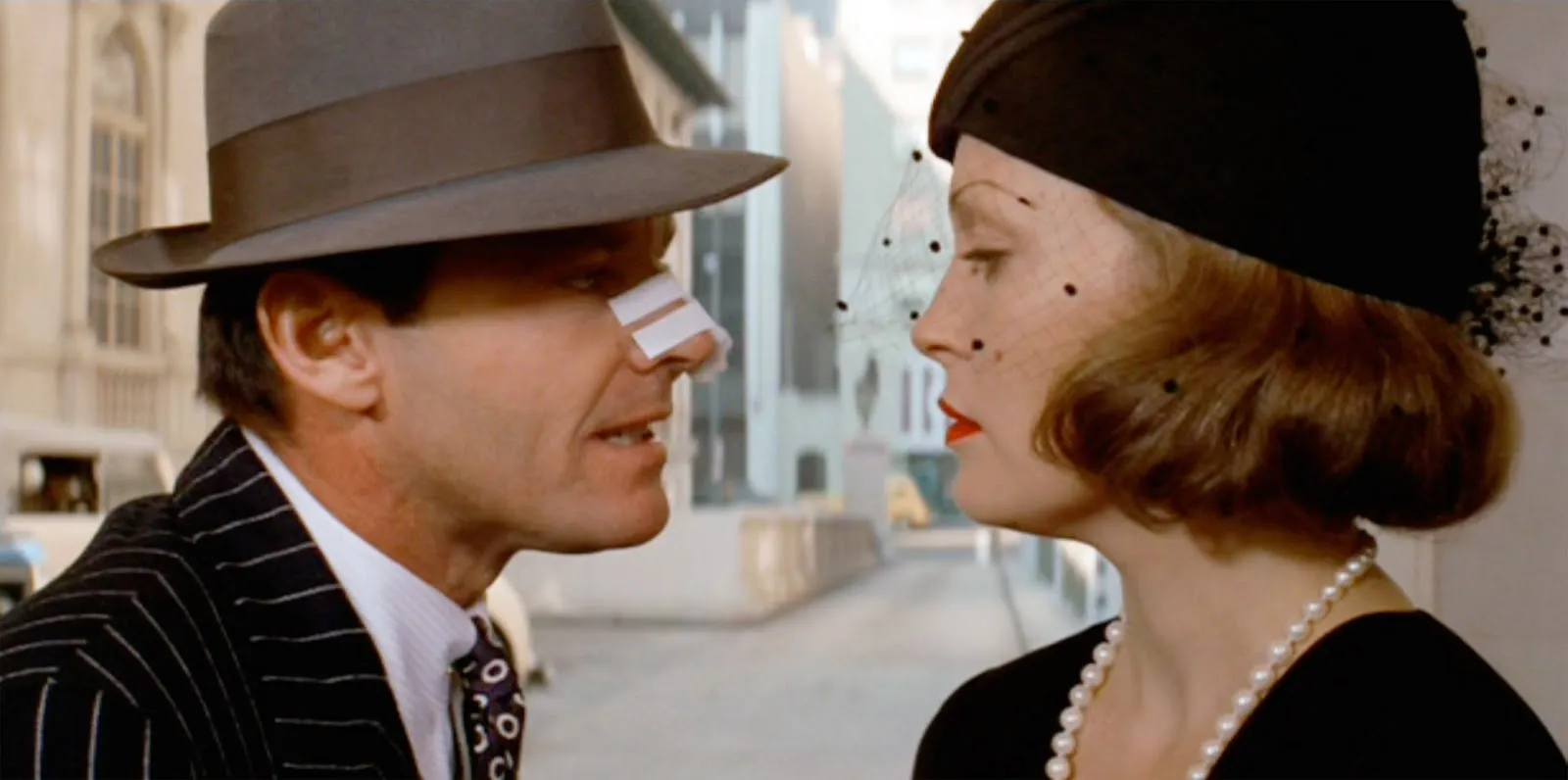Roman Polanski’s Chinatown tells a multi-layered story of small emotional conflicts and large societal corruption. Jack Nicholson stars as private investigator Jake Gittes, a man who is reluctantly pulled into what is at first the simple investigation of an affair. When his target turns up dead, it turns into a murder investigation. As the complex web of mystery continues to build around Jake, he finds himself unsure what he is actually investigating. Still, he is inquisitive enough to follow it to the bitter end. This nosy character trait is reflected in the visual gag of the bandage Jack has to wear on his nose after it is cut early in the story.
Jack Nicholson makes an interesting protagonist as Jake Gittes. He is more gruff and unpredictable than the usual noir detective (fitting that he is a private investigator instead of a true detective).
The film feels intelligently built and firmly crafted. It has a remarkably clear sense of itself and has a confident approach to tropes of the noir genre. These tropes exist in character (Jake’s reluctance to get involved in the case followed by his inability to escape it til it’s bitter end), cinematography (dialogue in cars where all but a sliver of the actors’ faces are in shadow) and, obviously, the dense mystery plot.
One of the cleverest aspects of the film is the interweaving connection of small plot devices. Jake’s most common companion through the mystery is the determined Evelyn Mulwray, played solidly by Faye Dunaway. Subtle, seemingly-incidental references to her left eye are planted throughout the film, such as her rubbing it while driving and Jake noticing a birthmark in it. In the final scene of the film however, these are revealed to be foreshadowing, as Evelyn is tragically shot through her left eye by police as she tries to escape her terrible circumstances. Furthermore, in this final scene Polanski does not even need to show us that Evelyn has been hit. After the police fire at her fleeing vehicle, it slows to a stop and the car’s horn sounds continuously. It is at that moment we remember what had seemed to be an inconsequential moment earlier in the film when Evelyn accidentally head-butts the steering wheel of her car - sounding the horn. This is the primary cleverness of the film: subtly planting devices in the viewer’s head that they do not realise are there until they are dramatically called back to.
Very little is explained translucently to the viewer. We are forced to stay alert through each deliberately slow-paced scene in order to search for any clues to the direction the story is headed. This technique comes at a price of connection to the characters. Since we are never really let in on the characters’ goals - most of all those of Jake - it becomes difficult to relate with their decisions and resulting circumstances. On the whole however, Chinatown is such a solidly constructed film that it’s impossible for this minor lack of emotional connection to diminish one’s appreciation of the film’s many successes.

